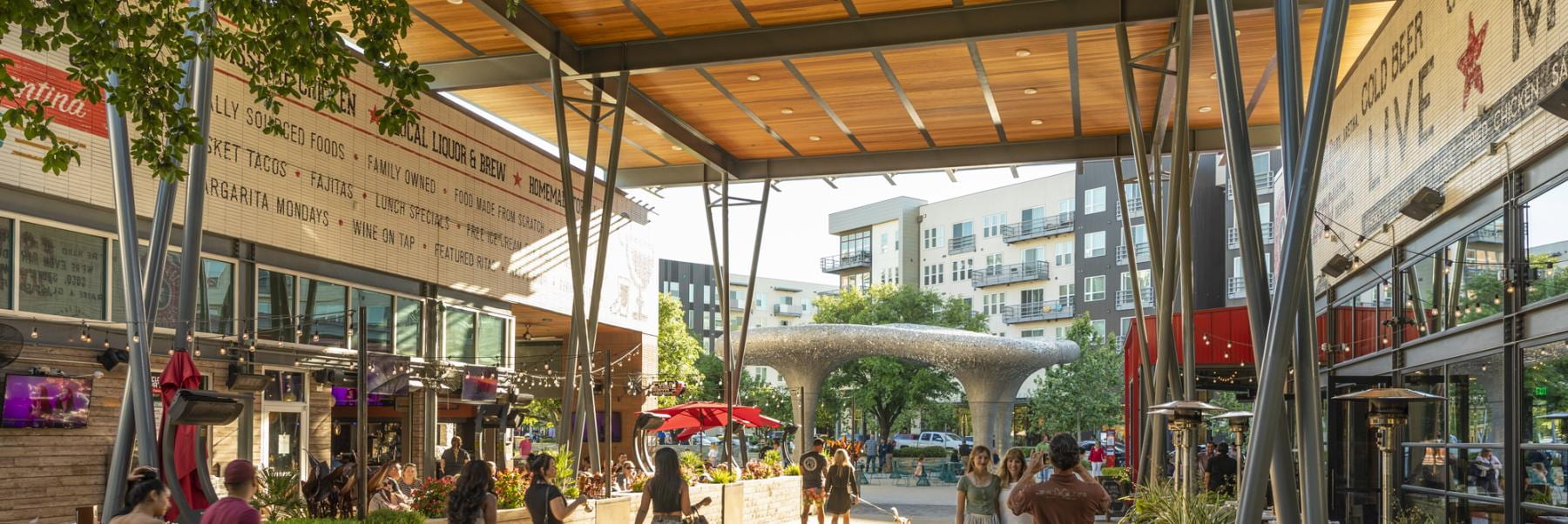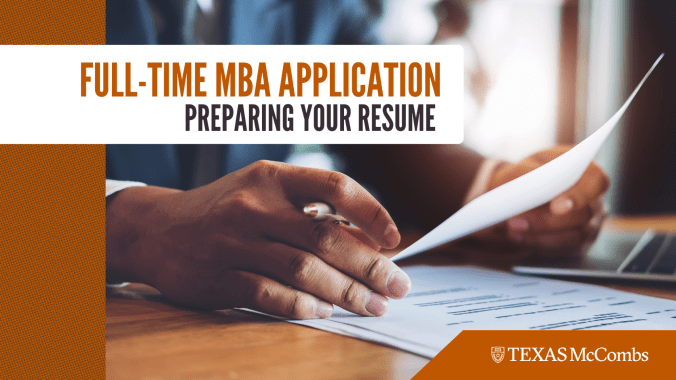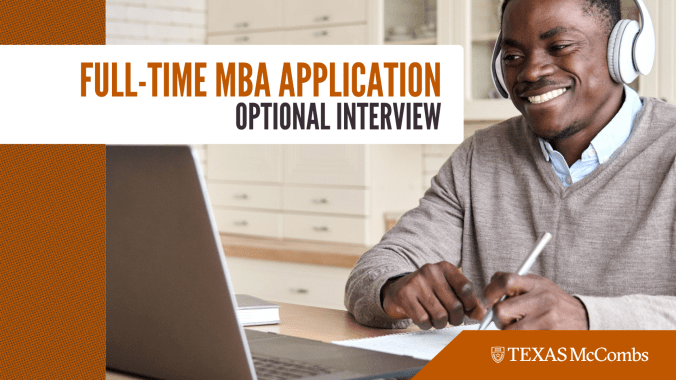Picture this: two equally powerful paths leading to the same Hildebrand MBA degree — one with weekday classes for full immersion, the other with evening or alternating weekend options so you can continue working. That’s the reality of the Part-Time vs Full-Time MBA decision at Texas McCombs
At our school, both the Full-Time MBA and the Part-Time MBA programs deliver rigorous academics, dynamic networking, and robust career services. Yet each format is intentionally designed for distinct student needs — whether you’re ready to pause your full-time job for an intensive experience or prefer to keep your career momentum while you take classes in the evenings or on weekends.
Choosing the right MBA program influences everything from your career goals and work-life balance to your financial strategy and lifestyle. The better the fit, the faster you can activate new skills, expand your network, and accelerate your career path.
No matter which format you choose, you’ll earn the same respected McCombs MBA degree from the same accomplished faculty. Our professors travel from Austin to teach the Weekend MBA cohorts in Dallas and Houston, and every student gains access to career resources designed for their specific path. The real question is timing, format, and fit.
This blog will walk you through the essentials of each format, the factors you should weigh, and the questions you’ll want to ask yourself before applying. By the end, you’ll have a clear, confident sense of which Texas McCombs MBA journey aligns with your professional ambitions and personal commitments.
Understanding Full-Time MBA Programs
Curious how Part-Time vs Full-Time MBA programs compare? If you’re ready to press pause on your career for an all-in, two-year adventure, the Texas McCombs Full-Time MBA delivers an immersive experience that accelerates transformation.
Program Duration and Structure
Over 21 months, you’ll move through a rigorous core, choose from 20+ concentrations, and complete a mandatory summer internship that tests your new skills in real-world settings. The format demands a full commitment — classes, study teams, case competitions, and leadership labs consume most weekdays, and many evenings, too.
Learning Opportunities
Elective freedom is a hallmark of our Full-Time MBA program. You’ll start self-selecting coursework in your first semester and begin taking open electives as early as the spring of year one. International students can pursue one of two STEM-designated paths — Financial Mathematics or Management Science/Quantitative Methods — while still exploring the full range of electives. Specialized tracks in areas like entrepreneurship, marketing, health care, or analytics let you tailor your degree to precise career goals from the start.
From MBA consulting projects to Board Fellows and Venture Fellows, you’ll tackle high-stakes challenges alongside top employers. Executive coaches provide personalized feedback, sharpening your leadership presence and decision-making skills.
Career Development
Whether you aim to switch industries, functions, or geographies, our Career Management & Corporate Relations team equips you with one-on-one coaching, recruiting prep, and access to more than 820 corporate partners. That support, combined with Austin’s booming business ecosystem, makes bold career moves possible.
Paid Internship Experience
A hallmark of the Full-Time MBA at Texas McCombs is the required paid internship, a cornerstone of the program that sets it apart from the Part-Time MBA options. This internship bridges classroom learning with real-world impact, allowing you to test your new skills, explore potential career pivots, and often secure full-time job offers before graduation. For many, it’s a career-defining experience that delivers both practical insight and financial benefit during the program’s 21-month journey.
Admissions Snapshot
The full-time program attracts a diverse, global cohort — more than 2,000 applicants each cycle — fostering a vibrant classroom dynamic and an expansive international network.
Here’s how the full-time path typically stacks up:
- Pros: Immersive learning, deeper peer bonds, stronger on-campus recruiting, robust scholarship opportunities, and the quickest route to a major career switch.
- Cons: Requires stepping away from your career and salary for two years, though scholarships and summer internship income can offset some of that gap; demands intense time investment
For a detailed look at funding options, explore the financial impact of a Texas McCombs MBA, or dive into program specifics on our Full-Time MBA page.
Understanding Part-Time MBA Programs
Ready to keep your full-time job while earning a world-class MBA? The Texas McCombs Part-Time MBA formats — Evenings in Austin and Weekend cohorts in Dallas/Fort Worth and Houston — let you advance your education without pausing your paycheck.
Program Duration and Structure
Each part-time program spans two years, meeting on weekday evenings or alternating weekends. You’ll tackle the same rigorous core courses as Full-Time MBA students, but on a schedule built for working professionals.
Because you remain employed, you can apply new frameworks, analytics tools, and leadership tactics at work the very next day. Many Part-Time MBA students report promotions, raises, or strategic job changes before graduation — proof of instant ROI.
Curriculum Designed for Working Professionals
Our Working Professional & Executive (WPE) curriculum dedicates additional credit hours to technology, leadership, and global business. You’ll complete:
- Two flexible core electives on technology and global management,
- Three curated general electives in core business topics, ranging from Investment Theory and Strategic Branding to Venture Finance and Strategic Corporate Social Responsibility.
Outside of the classroom, you can opt for co-curricular opportunities through McCombs+ projects, where you’ll consult for real business issues for companies, sharpen presentation skills, and expand your professional network — without leaving your daytime role.
Career Impact
The career outcomes are compelling. Graduates consistently report substantial salary increases and strong upward mobility, with a significant portion moving into senior or executive roles after completing the program. Many receive promotions directly after earning their MBA.
The majority of graduates successfully pivot careers, whether changing industries, functions, or roles entirely. The program attracts employers across financial services, technology, consulting, manufacturing, healthcare, and energy — reflecting Texas’s business ecosystem. And because you’re still working while you study, you can test-drive career changes more strategically, applying for internal transfers or exploring entrepreneurial ventures with less risk than you’d face leaving a job entirely.
Peer Networking
Your cohort becomes your professional community. You’ll study alongside working professionals from various industries across the metro area — from tech founders in Austin to energy executives in Houston to financial services leaders in Dallas/Fort Worth. These aren’t just classmates; they’re colleagues who understand the challenge of balancing work, school, and life.
But your network doesn’t stop at city limits. The alumni network stays active through regional events, employer networking sessions, and career fairs across all three Texas hubs. You’ll also share courses and activities with other McCombs MBA formats, creating mentorship opportunities and connections across career stages.
Evaluating the Pros and Cons
Consider how the part-time path measures up:
- Pros: Maintain a full-time job and salary, potential employer tuition support, immediate learning application, reduced opportunity cost, and a strong peer network of working professionals in your region.
- Cons: Juggle work, classes, and family duties; no traditional internship options; scholarships are more limited; progress toward degree milestones is paced over evenings and weekends.
Factors To Consider When Choosing Between Part-Time and Full-Time
Your decision isn’t just about scheduling — it’s about aligning the program with your ambitions, resources, and lifestyle so you can maximize the value of a Texas McCombs MBA. Here are the main items to think about:
Career Direction and Mobility
If you’re eyeing a major industry or functional switch — say, from engineering to consulting — both programs offer strong pathways. Full-time students leverage summer internships to test new industries before committing. Part-time students have flexibility: you can make a strategic job change mid-program or take advantage of on-campus recruiting alongside full-time students. Staying in your current field but aiming for bigger leadership roles? A part-time program lets you demonstrate new competencies at work while you study, bolstering your credibility in real time.
Industry Expectations
Industry hiring practices vary by company and role. Some employers prioritize Full-Time MBA candidates with internship experience, while others value the hands-on application that students bring from working throughout their Part-Time MBA program. Research your target industry’s hiring norms before choosing your path. Either way, McCombs connects you to UT Austin’s extensive alumni base, including over 100,000 McCombs alumni.
Personal and Professional Commitments
A full-time student typically relocates to Austin and pauses full-time employment for two years. Part-time students preserve their full-time jobs, often balancing coursework with family responsibilities and community commitments, while staying in their local metro area or commuting nearby. Plus, you can receive a top-ranked MBA education at your doorstep and in your specific market. Think through the support systems you’ll need to excel in either environment.
Financial Considerations
Full-time candidates forgo a salary for up to 24 months, though scholarships, the internship, and part-time employment can offset that gap. Part-Time MBA students continue earning and may access employer sponsorship, spreading tuition payments across semesters and minimizing debt. Use our guide to calculate the true value of securing an MBA.
Is a Texas McCombs MBA worth it? Whether full-time or part-time, our MBA degree delivers powerful returns: higher earning potential, an expansive alumni network, and executive education-level leadership training. The right format amplifies those benefits by matching your current reality and future vision.
Work-Life Balance
Both tracks are demanding. Full-time immersion compresses the workload into weekdays, freeing weekends for social events, case prep, and recruiting. Part-time students juggle working during the weekdays, while taking classes on weekday evenings or alternating weekends alongside class assignments, requiring disciplined time management and clear communication with employers and family.
Questions To Ask Yourself Before Deciding
A clear-eyed self-assessment turns general advice into a tailored action plan. Before applying, pause and consider how each format aligns with your vision for the next five, ten, or even twenty years.
Use the following prompts to guide an honest conversation with yourself — and with the people who’ll support you during the journey:
- What specific career goals do you want this MBA to unlock, and which format best supports that trajectory?
- Where do you stand in your professional timeline — early career, mid-level manager, or seasoned leader — and how quickly do you need a change?
- Does your employer offer tuition reimbursement, schedule flexibility, or project opportunities that favor one program over the other?
- How will your family or support network adjust to the time and financial investment you’re about to make?
- After weighing all factors, which program naturally excites you more — full-time immersion or part-time flexibility?
Keep these answers close; they’ll serve as your compass as you move into the practical next steps of choosing the right Texas McCombs MBA path.
Making the Right Decision: Practical Steps to Choose Your McCombs MBA Program
Now that you’ve matched your aspirations with the strengths of each format, turn insight into decisive action:
Research Target Roles and Industries
Review job descriptions, salary data, and hiring timelines. Identify whether recruiters in your field prioritize internships, working experience, or both.
Talk to Our Community
Schedule coffee chats or phone calls with current students and alumni from both formats. Their lived experiences — course rigor, faculty access, student life — offer an invaluable perspective.
Evaluate Financial Aid and Employer Sponsorship
Compare fellowship packages, merit-based scholarships, and corporate tuition benefits. Factor in the continued income for part-time students versus full-time immersion’s opportunity cost.
Consider Applying to Both Programs
If you see advantages on each side, submit applications to both. Just keep in mind that admission to one Texas McCombs Hildebrand MBA program doesn’t guarantee admission to another, so present a clear case for fit in every application.
Leverage McCombs Career Support
Regardless of format, you’ll gain access to career coaches, global alumni, and more than 820 employer partners eager to recruit McCombs talent. Ready to chart your future? Explore our Part-Time and Full-Time MBA program options:
- Full-Time MBA
- Evening MBA
- Weekend MBA (Dallas/Fort Worth)
- Weekend MBA (Houston)
Your next chapter starts when you decide which program elevates your goals — and Texas McCombs is ready to lead the way.


























